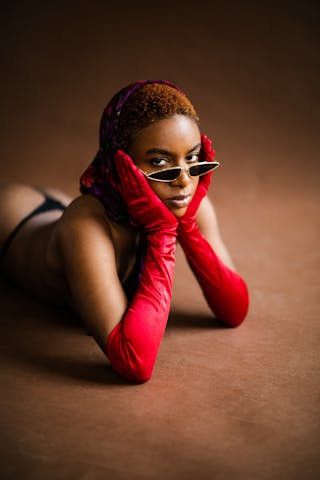Creating An Asexual Character For TV Showed Me We Have A Way To Go
Have you ever noticed that there seems to be a lack of asexual characters on TV? It's important to have representation for all sexual orientations, and asexual individuals are no exception. Including asexual characters in TV shows can help to educate and normalize asexuality for viewers. It's time for the media to reflect the diversity of the real world, and that means including asexual characters in their storylines. It's time to embrace all sexual orientations. If you're looking to find like-minded individuals in your area, check out this ultimate guide to meeting gay men in your area.
In recent years, there has been a push for more diversity and representation in the media. This includes the inclusion of asexual characters in TV shows and movies. As someone who identifies as asexual, I was excited to see this representation in the media. However, as I delved into the portrayal of asexual characters on TV, I realized that we still have a long way to go in accurately depicting asexuality.
If you're looking for dating sites like Xpickup, you should definitely check out Angels Club for a great alternative.
Misconceptions and Stereotypes
"Explore the exciting world of taboo chat at Ass Pix and join in on the fun today!"
One of the biggest issues with the portrayal of asexual characters on TV is the perpetuation of misconceptions and stereotypes. Asexuality is often misunderstood and misrepresented, leading to harmful stereotypes being perpetuated in the media. Asexual characters are often depicted as emotionless or robotic, lacking any desire for intimacy or relationships. This narrow portrayal fails to capture the diversity and complexity of asexuality, painting a one-dimensional picture of a diverse and nuanced orientation.
Discover new and exciting online chatting sites for free!
Lack of Visibility
Another issue that I have noticed is the lack of visibility of asexual characters on TV. While there have been a few notable examples of asexual characters in popular TV shows, such as Todd Chavez in "BoJack Horseman" and Jughead Jones in "Riverdale," these characters are still few and far between. The lack of representation perpetuates the idea that asexuality is rare or abnormal, further marginalizing asexual individuals and erasing their experiences from mainstream media.
Sensationalizing Asexuality
In some cases, asexuality is sensationalized for dramatic effect, rather than being portrayed authentically. Asexual characters are often used as a plot device to create conflict or drama, rather than being portrayed as fully realized individuals with a valid sexual orientation. This sensationalizing of asexuality only serves to further stigmatize and marginalize asexual individuals, reinforcing harmful stereotypes and misconceptions.
The Need for Authentic Representation
As a dating blog catering to a diverse range of individuals, it is important to recognize the need for authentic representation of asexual characters in the media. By accurately portraying asexual characters and their experiences, TV shows can help to educate and raise awareness about asexuality, ultimately fostering greater understanding and acceptance.
Incorporating asexual characters into TV shows in a meaningful and authentic way can also provide much-needed visibility and validation for asexual individuals. It can help to challenge misconceptions and stereotypes, while also affirming the diverse experiences of asexual individuals in the dating and relationship landscape.
Moving Forward
While there is still much work to be done in accurately representing asexual characters on TV, there have been some positive steps towards greater visibility and understanding. As more people become aware of asexuality and its place within the spectrum of human sexuality, we can hope to see more authentic and diverse portrayals of asexual characters on TV in the future.
As a platform that celebrates diversity and inclusivity in the dating world, it is important to continue advocating for authentic representation of asexual individuals in the media. By doing so, we can help to create a more inclusive and understanding environment for all individuals, regardless of their sexual orientation.
- https://singles-website.fu-direct.net/posts/why-twitter-is-being-accused-of-deliberate-bisexual-erasure/
- https://online-sex.fu-direct.net/posts/my-best-sex-ever-was-when-i-didnt-orgasm/
- https://singles-website.fu-direct.net/posts/dating-after-my-diagnosis/
- https://free-dating-website.fu-direct.net/posts/beach-sex-16-beach-sex-stories/
- https://dating-website.ua-sex.com/posts/why-you-overshare-after-sex/
- https://singles-website.ua-sex.com/posts/polyamory-diaries-12-can-a-marriage-survive-without-sex/
- https://singles-chat.ua-sex.com/posts/how-to-do-the-corkscrew-position-a-sex-expert-explains/
- https://personals-website.fu-direct.net/posts/pegging-meaning-and-everything-you-need-to-know-about-pegging-sex/
- https://dating-website.ua-sex.com/posts/disabled-dating-should-you-pass-as-nondisabled-on-dating-apps/
- https://singles-website.ua-sex.com/posts/chrishells-breakup-shows-the-need-for-shared-relationship-goals/
